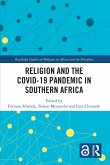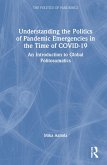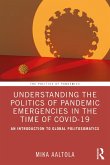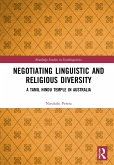This book centers on negotiations around cultural, governmental, and individual constructions of COVID-19. It considers how the coronavirus pandemic has been negotiated in different cultures and countries, with the final part of the volume focusing on South Asia and Pakistan in particular. The chapters include auto-ethnographic accounts and ethnographic explorations that reflect upon experiences of living with the pandemic and its implications for all areas of life. The book explicates people's dealings with COVID-19 at various levels, situates the spread of rumors, conspiracy theories, and new social rituals within micro- and/or macro-contexts, and describes the interplay between the virus and various institutionalized forms of inequalities and structural vulnerabilities. Bringing together a variety of perspectives, the volume relates to the past, describes the Covidian present, and offers futuristic implications. It enlists distinct imaginaries based on current understandings of an extraordinary challenge that holds significant importance for our human future.
"The COVID-19 pandemic has changed the world, but differently in different places. Thus, everywhere it is possible to talk about life and experience before the pandemic, and how things are different now. These statements are true and matter because in all places in the world the pandemic has been a force and a presence that cannot be ignored. It is on this basis that this illuminating and insightful global collection gives rise to what the editors call Covidian anthropology, the ethnographic and auto-ethnographic examination of sociocultural constructions of and negotiations around COVID-19 at the individual, local, sociocultural, national, and global levels. Addressing a wide array of issues of anthological concern, the chapters in this volume affirm that COVID-19 is far more than a biomedical issue in that it shapes and is shaped by culture, hierarchy, inequality, social vulnerability, meaning, and agency as it engages the fault lines of society. This book is a must read within and beyond the academy as we try to make sense of the pandemic and its multiple impacts on our lives." - Merrill Singer, University of Connecticut








